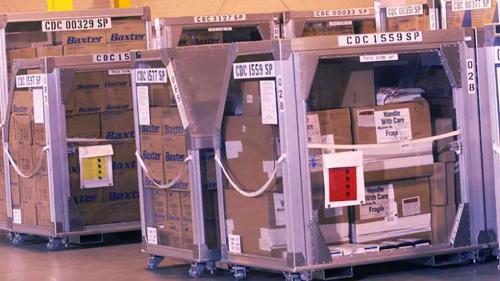State, Tribal, Local, and Territorial Public Health Preparedness

FDA Roles | Legal Mechansims | Latest Updates | Contact
FDA Roles
FDA has many medical countermeasure (MCM) roles. MCMs include drugs, vaccines, diagnostic tests, and other medical products used in public health emergencies to diagnose, treat, or prevent serious or life-threatening diseases or conditions resulting from chemical, biological, radiological, and nuclear (CBRN) threats. This includes emerging infectious diseases, such as pandemic influenza.
Among FDA’s MCM roles, FDA works closely with stakeholders at the state and local levels to support public health preparedness and response efforts related to MCMs. Stakeholders’ MCM preparedness and response efforts include activities such as stockpiling, distributing, and dispensing or administering MCMs (e.g., antimicrobials) during or in anticipation of a public health emergency (e.g., an anthrax attack or influenza pandemic).
Legal Mechanisms
Through certain legal mechanisms, FDA can help make available safe and effective MCMs for use in emergencies by state and local partners. One of these tools is an Emergency Use Authorization (EUA) under section 564 of the Federal Food, Drug, and Cosmetic Act (FD&C Act). Through an EUA, in certain situations FDA may authorize the use of an unapproved medical product—or an unapproved use of an approved medical product—to counter CBRN and emerging infectious disease threats.
In March 2013, the President signed into law the Pandemic and All-Hazards Preparedness Reauthorization Act (PAHPRA). Among other things, this law amended the EUA authority. It also created new FDA authorities related to the emergency use of MCMs, including for expiration dating extensions, emergency dispensing orders, and cGMP requirement waivers, when appropriate. These changes resulting from PAHPRA will further facilitate state and local preparedness for emergencies that involve the use of MCMs.
The latest updates and additional information for stakeholders are available on these pages:
- EUA
- Expiration dating extensions
- PAHPRA
- Summary of PAHPRA's MCM provisions
- MCM-related legal and policy presentations, publications and Q &A
- Guidance and other information of special interest to MCM stakeholders
- Vaccine EUA Questions and Answers for Stakeholders
- FAQs: What happens to EUAs when a public health emergency ends?
For more information on these topics, please contact: AskMCMi@fda.hhs.gov.
Related Links
- FDA Information for Federal, State, Local, Tribal, and Territorial Officials
- HHS Response and Recovery Resources Compendium
- Public Readiness and Emergency Preparedness (PREP) Act
- HHS Public Health Emergency Information
- CDC Center for Preparedness and Response
- CDC State, Tribal, Local and Territorial Public Health Professionals Gateway
